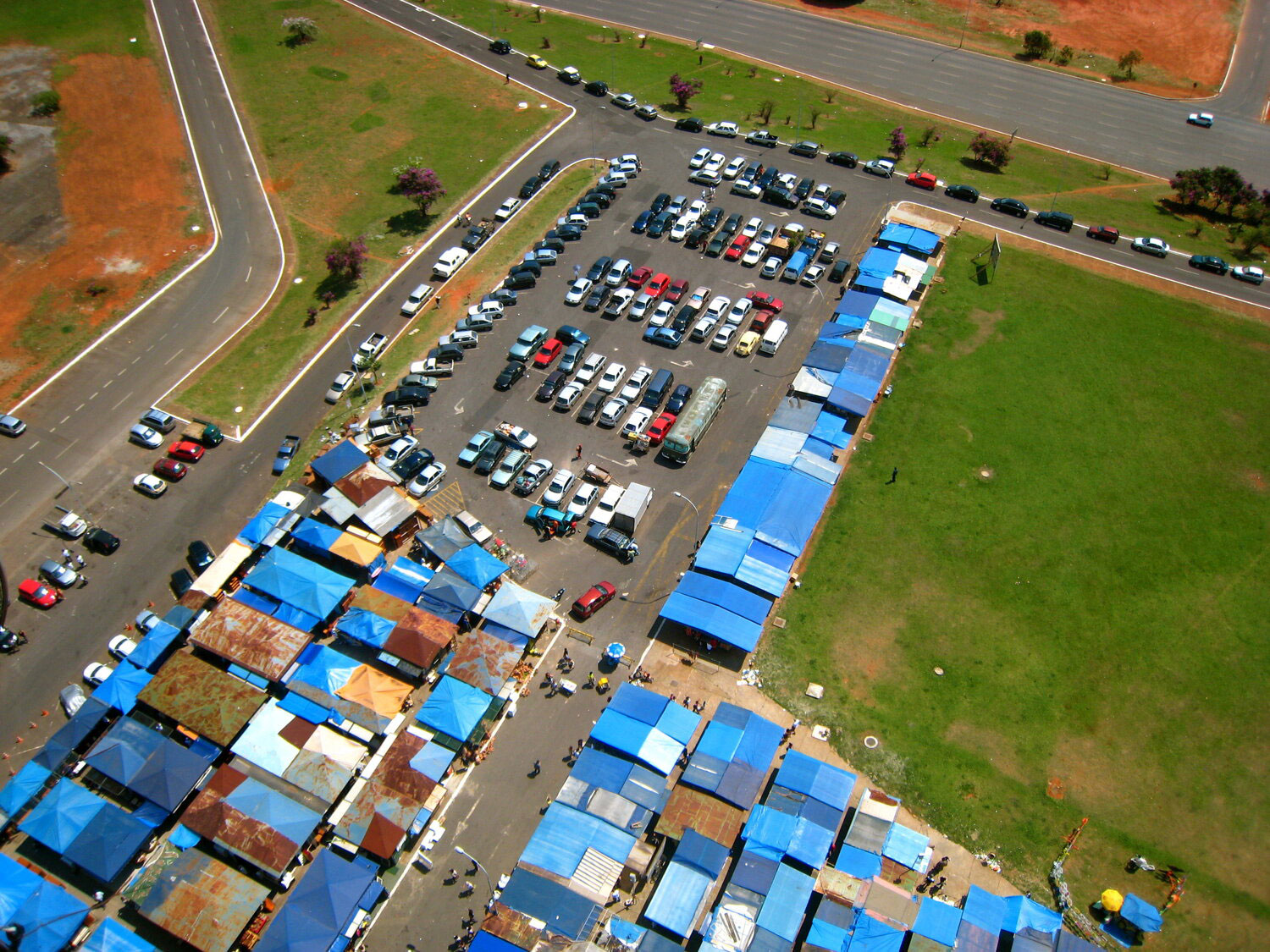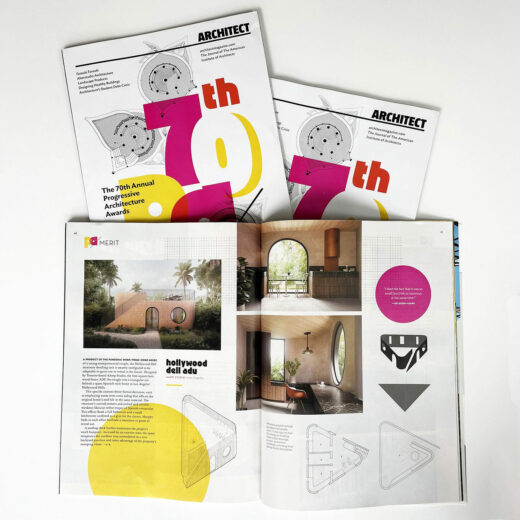
Bent Bureaucracy
Brasilia, BrazilOn a not-so-recent trip to Brasilia, we climbed the central TV tower to gain an elevated view of its planned utopian context. While iconic Neimeyer structures dotted our surroundings — a wonderful experience we don’t take lightly — what we found beneath our feet at the plaza below surprisingly intrigued us nearly as much.
This market perked our interest not only due to the unique perspective we were able to gain high above, but also due to the space it occupied in the highly planned urban fabric around us, originally intended to convey social order and monumentality. With city regions strictly established for civic, residential, commercial and recreational duties, the market seems to defy these rules through its informality.
This makeshift neighborhood of retailers selling small goods — food, textiles, artisanry, etc — creates a sense of place in what is ordinarily a flat asphalt parking lot in the Jardim Burle Marx, Brasilia’s central civic park. Temporary or ephemeral in nature, the market brings a scale to the city that is otherwise hard to find. To us, this signals an innate need for human scale by the city’s inhabitants — a reaction to its grandiose boulevards, housing blocks, and civic buildings separated by expanse of land. Ironically, within this amalgamated state it finds its own organic state of order — of service and served, of parking lot and shopping isles — through its blue tented module structure.
This innate and temporary need to come together at the human scale is topical in light of the current pandemic. While we’ve grown accustomed to — and in many cases aspired to — living in dense urban cores, COVID-19 has forced us to maintain social distance and prioritize outdoor activities, retail, social gatherings, etc, to minimize the spread. In turn, our cities closed down streets and repurposed parking spaces to extend its purveyors’ doors to the outside — a wonderful display of the flexibility of our public spaces when bureaucracy bends.
Like Brasilia, we’re interested to see how this might further extend into the negative spaces in our urban centers and its peripheries: parking lots, allies, large medians, undeveloped land, and other underutilized spaces. While vaccines are being circulated, the pandemic’s end is not in immediate sight, and our cities need to respond in a way that is both safe and profitable for its businesses. Maximizing outdoor space in an intelligent way — without overly sacrificing central urban services — would help to provide an added layer of retail and social stability needed in this time, while creating an interesting and unique fabric our cities have rarely seen before.

